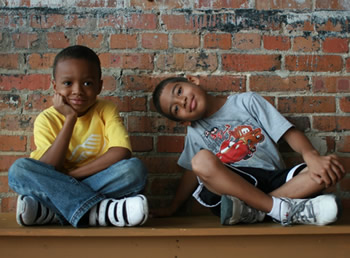In my seven years of fostering, 75% of children who have come through my home have been part of a sibling group of at least two children. It can be a challenge to welcome multiple children with trauma into your home. The new challenges can be based on simple things like laundry, meal preparation, or even the forever challenge of getting everyone out the door in the morning. However, I’ve gathered few observations over the years that might be helpful to share with a family who is ready to take in their first sibling group.
- Expect some extra clingy behavior. Most siblings have been through thick and thin together already. They will want to know where their brother or sister is all the time. They will need constant reassurance that they are safe. They may even want to be in the same room as much as possible. This is completely normal. Once the children begin to get their bearings in your home, you will see this behavior diminish over time although it may never fully go away. In times of high stress, children may revert to the hyper-awareness of seeking out their sibling. Never discredit their fear. Simply reassure them that they are safe and will be back with them as soon as possible.
- Expect to teach them how to be children. In every sibling group that I have worked with at least one child was the “parent” figure. Typically, this is the oldest child or the female child in the group. This child will be very helpful to you; however, we have to step into the role of teacher and slowly take this child back to childhood. Likely, this over-parentified child will have trouble doing kid stuff like coloring, riding their bicycle, or just hanging out on the bean bag with their favorite toy. We have to step up and teach them the proper role of adults and children. We may have to discuss with them and make of list of adult responsibilities versus child responsibilities. For example, we might have to sit down with them and teach them that they are responsible for putting their own shoes on in the morning and we, as the parents, are responsible for assisting the baby in getting their shoes on.
- Expect to watch their trauma unfold in front of you. Siblings were there during the abuse. They witnessed the incidents that brought their family into the child welfare system. This provides them not only with a unique understanding of their brother or sister’s triggers and moods, but also with a way to act out their trauma. When our children get into normal childhood squabbles over whose turn is next or who was playing with the toy we typically see it escalate quickly. They may use foul language as they shout at each other. They may be physically aggressive like the abusive parent was, shoving their sibling to the ground. These moments are sometimes difficult to navigate but provide a platform for us to really reach into the child’s emotions and help work those feelings out. We can see a huge emotional growth in our children from working through these issues.
- Expect to wash more laundry and dishes than you had previously anticipated. I have no real secret advice for this. In fact, I’m open to hearing your laundry secrets and how you managed to get your kids to load the dishwasher. It’s technique I have yet to fully pass on to my children but I’ve heard rumors that it’s possible.
Ask yourself “Can I step up and help these kids when they are most vulnerable? If the answer is yes, ask us how to take the next step.
I’m looking forward to crossing paths with you during your journey in foster care,
Britney Voigt.
Learn More About Becoming a Foster parentBritney is a foster mom in Clay County. Seven years and 16 placements later, she’s using her experience to help others learn more about becoming foster parents. Read the Voigt family story.



